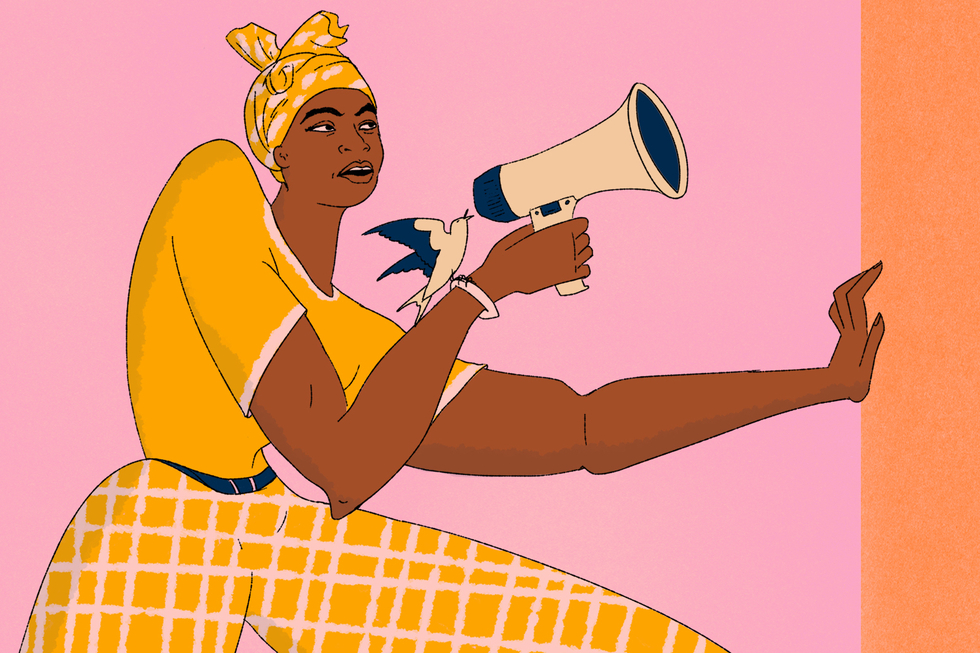Enabling Safe Journeys for Women and Girls

In light of the International Day for the Elimination of Violence Against Women on November 25th, it is crucial to underscore the role of the Global Compact for Migration in tackling gender-based violence (GBV) within migration and displacement contexts. The Global Compact for Safe, Orderly, and Regular Migration (GCM) framework holds immense potential for addressing the unique vulnerabilities faced by migrant women and girls across Africa, and other regions including in Kenya. Through the dedicated work of organizations like Candle of Hope Foundation (COHF) and insights gained from the recent Africa Regional Review in Addis Ababa, the global commitment of the GCM is proving vital to protecting vulnerable populations and fostering safer, more inclusive migration pathways.
The participation in the Inclusive Dialogues for Migrants in 2023 and 2024 jointly organized by Friedrich-Ebert-Stiftung Geneva Office and Quaker United Nations Office in Geneva, profoundly influenced COHF’s approach. The dialogue highlighted the critical importance of engaging migrant-led, grassroots community organizations in the GCM's national implementation. We saw firsthand that when the voices of migrants and community-based organizations drive policy discussions, the resulting policies become more responsive and effective. These insights continue to guide COHF’s work, ensuring that Kenya’s national GCM implementation remains connected to the real needs of migrants on the ground, particularly women and girls.
Protecting vulnerable migrants through a rights-based approach
A human rights-based approach to migration management views migrants as rights holders and prioritizes their treatment in migration discussions and programs. This approach is guided by the principles of non-discrimination and equality. The GCM provides a structured, rights-based approach to protect vulnerable migrants, and its implementation in Kenya offers key contributions to addressing GBV in migration contexts some of which include:
- Recognising that all people, including migrants, are entitled to have their human rights respected, protected, and fulfilled. At COHF, we have been running an economic empowernment programmes with migrant women in Eastleigh Kenya, providing them with seed capital and ensuring migrants have access to labor markets, social services, and regular pathways.
- Emphasizing the protection of vulnerable groups, especially women and children, by fostering robust, rights-based frameworks to combat violence and exploitation. In Kenya, where migrant women from conflict zones like South Sudan, Sudan, Ethiopia, and Somalia face heightened risks of GBV, the Joint Trafficking in Persons (JTIP) program in Marsabit County of Kenya implemented by COHF in collaboration with International Organization for Migration (IOM), exemplifies this commitment. By aligning with GCM principles, the program reinforces targeted, localized interventions essential for protecting those most at risk.
- Further, the GCM advocates for improved justice systems, healthcare, and support for GBV survivors, alongside training for frontline responders in gender-sensitive practices. COHF’s initiatives exemplify these efforts through our psychosocial support programs, awareness campaigns, and capacity-building workshops that empower local communities to recognize and address GBV. This work promotes gender-sensitive policies within migration contexts, ensuring support for survivors and preventive measures.
The GCM’s preventive approach tackles the root causes of migration, such as poverty, inequality, and conflict, which elevate the risk of GBV. In partnership with both state and non-state actors, COHF supports Kenya’s strategy to reduce vulnerability through educational and economic empowerment programs for undocumented migrant women in urban and peri-urban areas. These efforts not only reduce exploitation risks but foster safer, sustainable migration opportunities for women.
The importance of civil society in protecting the rights of migrant women and girls
Civil society organizations (CSOs), including COHF, are essential advocates for policies prioritizing the protection of migrant women and girls. Through our involvement in the Migrant Response Plan 2024-2026, we help align national and regional frameworks with GCM principles to ensure access to healthcare, education, and legal protections for migrant women, steps that are fundamental to reducing GBV risks.
The impact of the GCM is visible both nationally and regionally. In Kenya, for example, strengthened legal frameworks such as the Counter-Trafficking in Persons Act align with GCM objectives to enhance protections for migrant women and trafficking victims. Community-based initiatives, led by COHF and other CSOs, provide critical training for faith-based and community leaders on gender-sensitive migration practices, supporting local GBV prevention efforts and advancing community resilience.
The implementation of the GCM in Kenya and across Africa offers essential mechanisms for addressing and mitigating GBV within migration contexts. Through enhanced protection services, strengthened support systems, addressing root causes of migration, and fostering regional cooperation, the GCM creates pathways toward safer, more inclusive migration experiences. COHF’s work exemplifies the profound impact civil society can have when working alongside governments and international actors, making equitable migration a reality for women and girls across the region.
As we mark the International Day for the Elimination of Violence Against Women, the Global Compact for Migration reminds us of our shared responsibility to protect migrant women and girls from violence and exploitation. By strengthening policies and partnerships, we can create safe pathways in migration, ensuring every woman’s journey is one of dignity and security.
About

Nimo Mohamed Ali is the co-founder and Executive Director of the Candle of Hope Foundation (COHF), where she leads initiatives focused on economic empowerment, sustainability, child protection, humanitarian assistance, and peacebuilding within vulnerable communities. Her work includes supporting migrants, combating human trafficking, and addressing root causes of gender and child inequalities. Additionally, Nimo serves on the Executive Committee of Freedom Collaborative International and is a regional facilitator for the UN Network for Migration, promoting the Global Compact for Safe, Orderly, and Regular Migration (GCM).
The opinions and statements of the guest author expressed in the article do not necessarily reflect the position of the Friedrich-Ebert-Stiftung.

